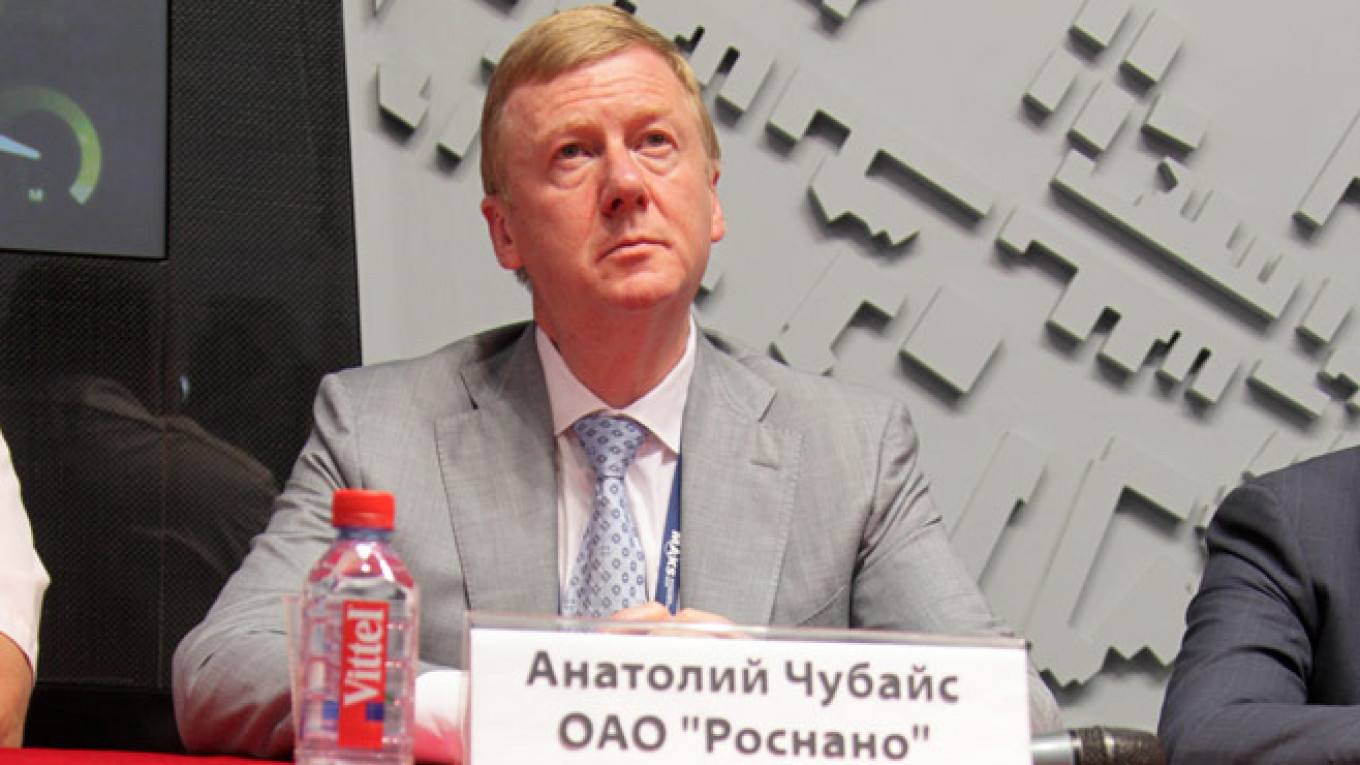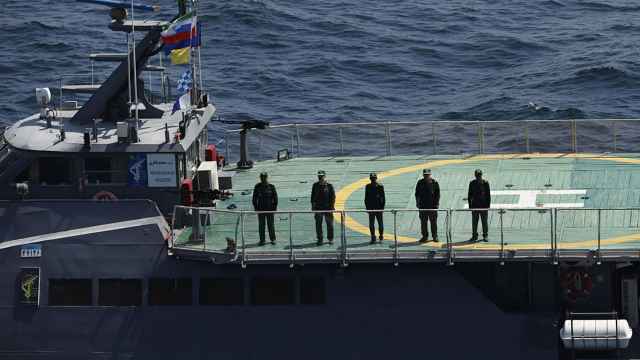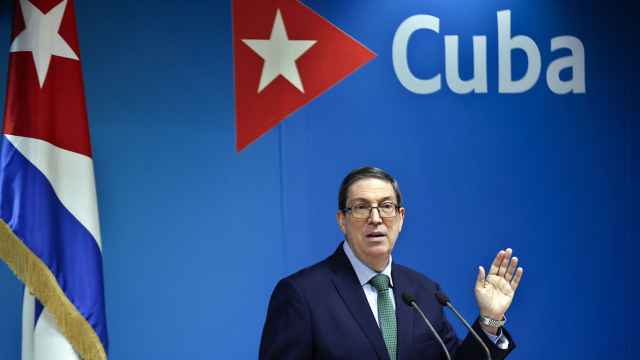Several men with ties to post-Soviet market reformer and Rusnano founder Anatoly Chubais have fled the country amid mounting fears of a crackdown following the arrest of key Chubais ally Leonid Melamed, the RBC news site reported Wednesday.
Melamed served as head of Rusnano's predecessor Rosnanotech when it was first launched in 2007 in a bid to spearhead technological development, thereby pushing the Russian economy away from its strong dependency on oil exports. He served as CEO of Rosnanotech for just over a year in 2007-08 before he was succeeded by Chubais.
On July 1, he was detained on suspicion of large-scale embezzlement of state funds at Rusnano as part of a conspiracy by an organized group. Investigators allege that, together with two other key employees, in 2007-09 Melamed embezzled more than 220 million rubles ($4 million) from Rosnanotech.
Two days later, a Moscow court placed him under house arrest pending the outcome of the ongoing investigation. If charged and convicted, Melamed faces up to 10 years in prison and a fine of up to 1 million rubles ($17,500).
Following his arrest, Melamed said the accusations against him were "groundless" and said he was ready and willing to cooperate with investigators.
Citing several unnamed sources familiar with the situation, RBC reported Wednesday that five current and former high-ranking Rusnano employees had left Russia due to fear of criminal prosecution.
Sources told RBC that Andrei Rappoport — former first deputy chairman of Rusnano's executive board and current president of Skolkovo Business School, another key Russian innovation project — had left the country and had no plans to return.
Rappoport himself rejected this version of events. "There's no need to look for intrigue where there isn't any. My departure is not connected to Melamed's case or to any other cases. I am currently enjoying a traditional summer vacation and plan to return to Moscow by the start of business season," Interfax cited Rappoport as saying.
Andrei Malyshev, a former Rusnano deputy CEO who was also named a suspect in the case, reportedly left Russia prior to Melamed's arrest to undergo emergency surgery in Europe. His lawyer told RBC that he was recovering from the operation and would return to Russia when doing so was deemed medically sound. She did not elaborate on his illness or the nature of his medical treatment.
Meanwhile, RBC's sources maintain that he is among the Rusnano employees who hope to avoid prosecution by remaining outside of Russia.
Associates of theirs that have likewise fled abroad reportedly include: Yury Udaltsov, current deputy chairman of the executive board at Rusnano; Yakov Urinson, current adviser to the company's executive chairman; and Dmitry Zhurba; the company's former chief financial officer, who was named a witness in Melamed's case.
Several days after Melamed's arrest, the court ordered the arrest of another former Rusnano CFO, Svyatoslav Ponurov. After having voluntarily returned to Russia from Finland to cooperate with investigators, Ponurov was placed under pretrial detention.
Chubais was likewise interrogated by investigators on July 10th. Several days earlier, he had written a post on Facebook declaring Melamed's innocence and vowing Rusnano's readiness to cooperate with investigators.
In the wake of Melamed's arrest, pundits told The Moscow Times that the move signifies Russia's further departure from meritocracy.
"The competent, merit-based elite is being replaced by a more primitive and barbarian one. [Former Finance Minister] Alexei Kudrin and Chubais are economists and understand perfectly that the country has come to a dead end, so naturally there is no place for them in the system," Dmitry Oreshkin, a prominent political analyst, said at the time.
RBC reported that three sources in the know had suggested the Rusnano crackdown was triggered by Chubais' decision to participate in a televised debate with Alexei Navalny, one of the Kremlin's most vociferous critics. The debate aired on liberal-leaning television channel Dozhd a week prior to Melamed's arrest.
This theory, if true, would bolster a claim one pundit made to The Moscow Times shortly after Melamed's arrest.
"The security apparatus has been looking for a way to attack Chubais, but there was no permission from the Kremlin. Now it seems that permission has been granted," Igor Bunin, head of the Center for Political Technologies think tank in Moscow, said at the time.
Rusnano's current head Chubais, a member of the St. Petersburg circle of economists who reformed the Soviet planned economy into a market one, may be regarded by some analysts as the country's top reformer, but he is widely despised by the Russian public.
Chubais is seen as being behind the controversial loans for shares privatization scheme that in the eyes of many Russians put the most lucrative chunks of Soviet assets into the hands of a few oligarchs in the 1990s.
According to its website, Rusnano has already poured more than 100 billion rubles ($1.8 billion) into Russian tech industries — including in the fields of solar energy, medicine and biotechnology — making it one of the country's largest technology investors.
Contact the author at [email protected]
A Message from The Moscow Times:
Dear readers,
We are facing unprecedented challenges. Russia's Prosecutor General's Office has designated The Moscow Times as an "undesirable" organization, criminalizing our work and putting our staff at risk of prosecution. This follows our earlier unjust labeling as a "foreign agent."
These actions are direct attempts to silence independent journalism in Russia. The authorities claim our work "discredits the decisions of the Russian leadership." We see things differently: we strive to provide accurate, unbiased reporting on Russia.
We, the journalists of The Moscow Times, refuse to be silenced. But to continue our work, we need your help.
Your support, no matter how small, makes a world of difference. If you can, please support us monthly starting from just $2. It's quick to set up, and every contribution makes a significant impact.
By supporting The Moscow Times, you're defending open, independent journalism in the face of repression. Thank you for standing with us.
Remind me later.






